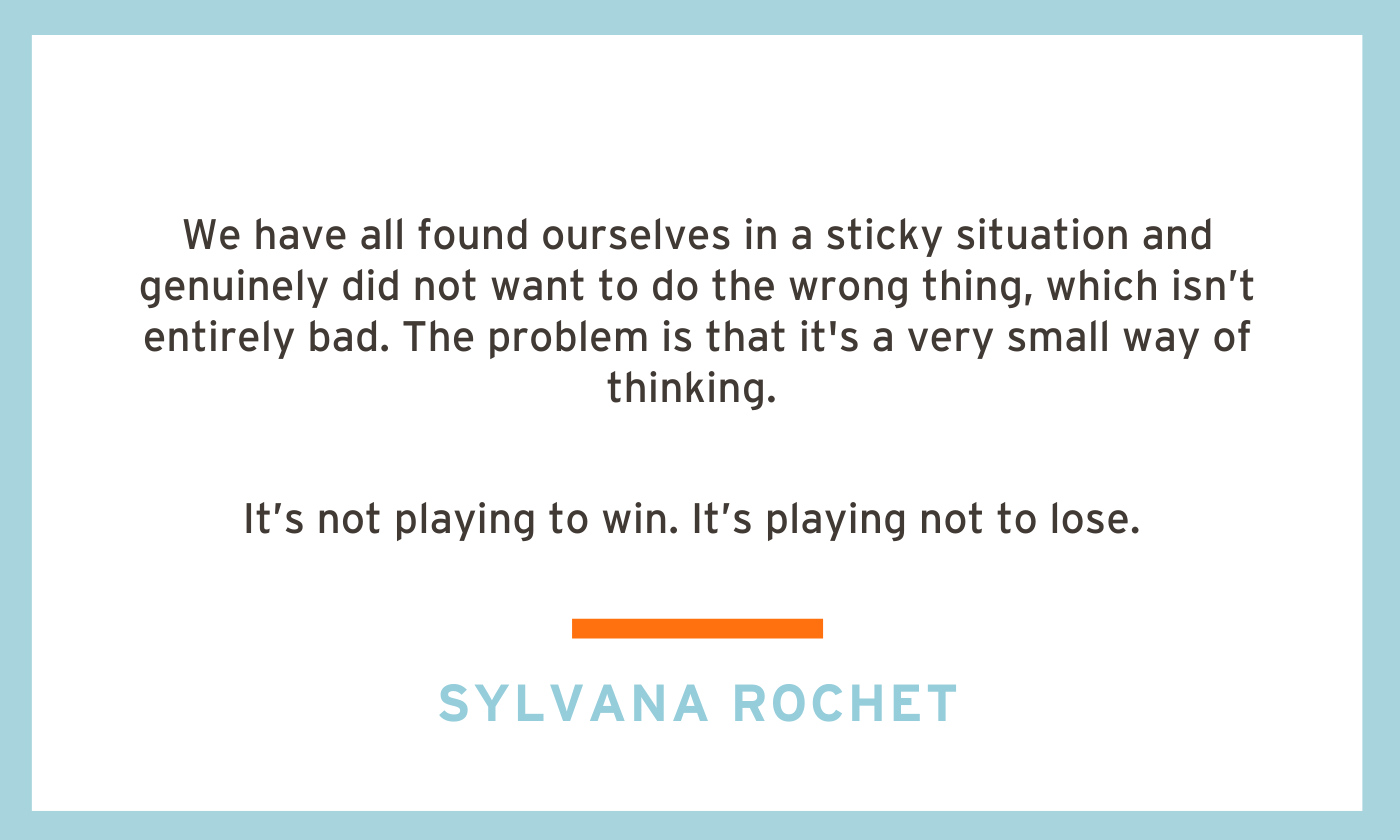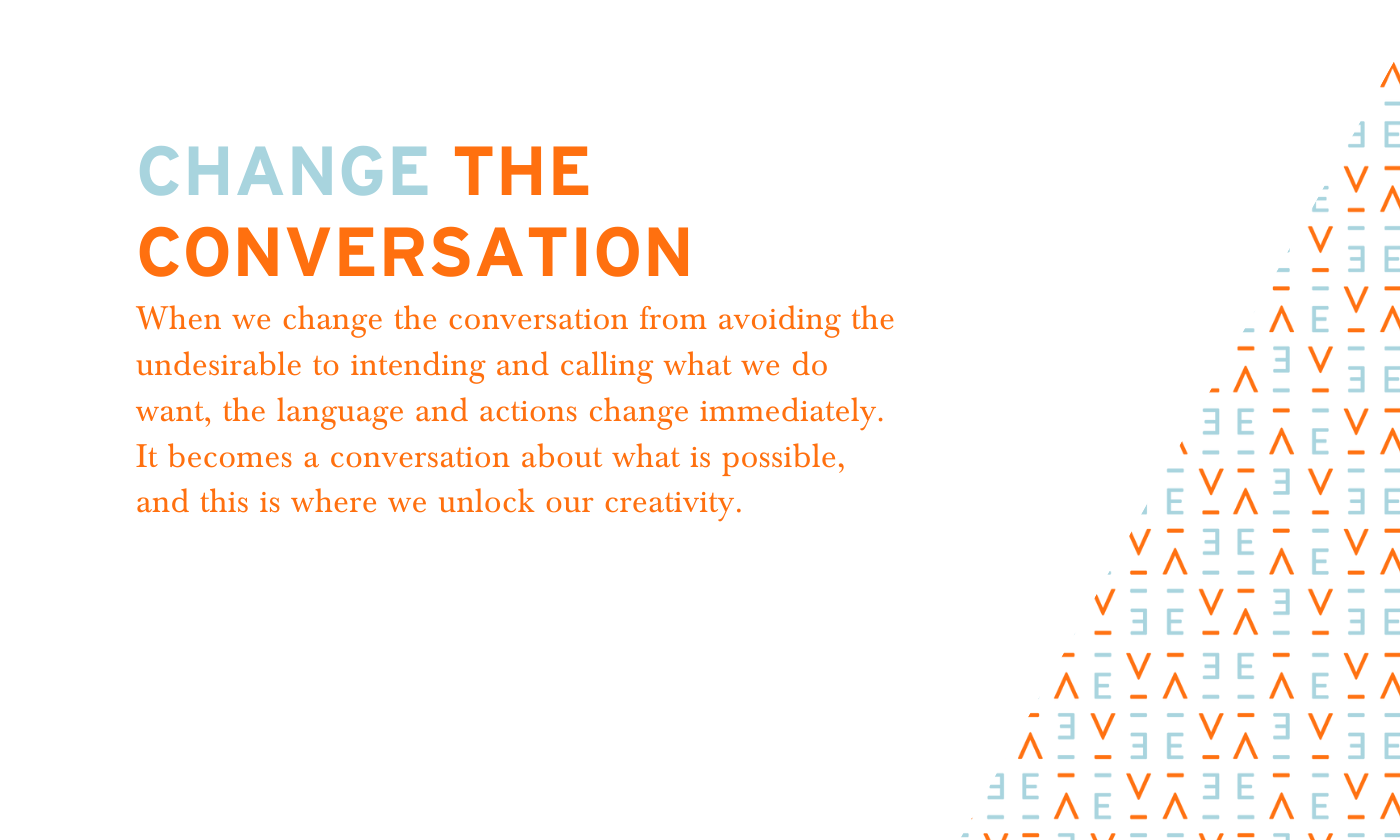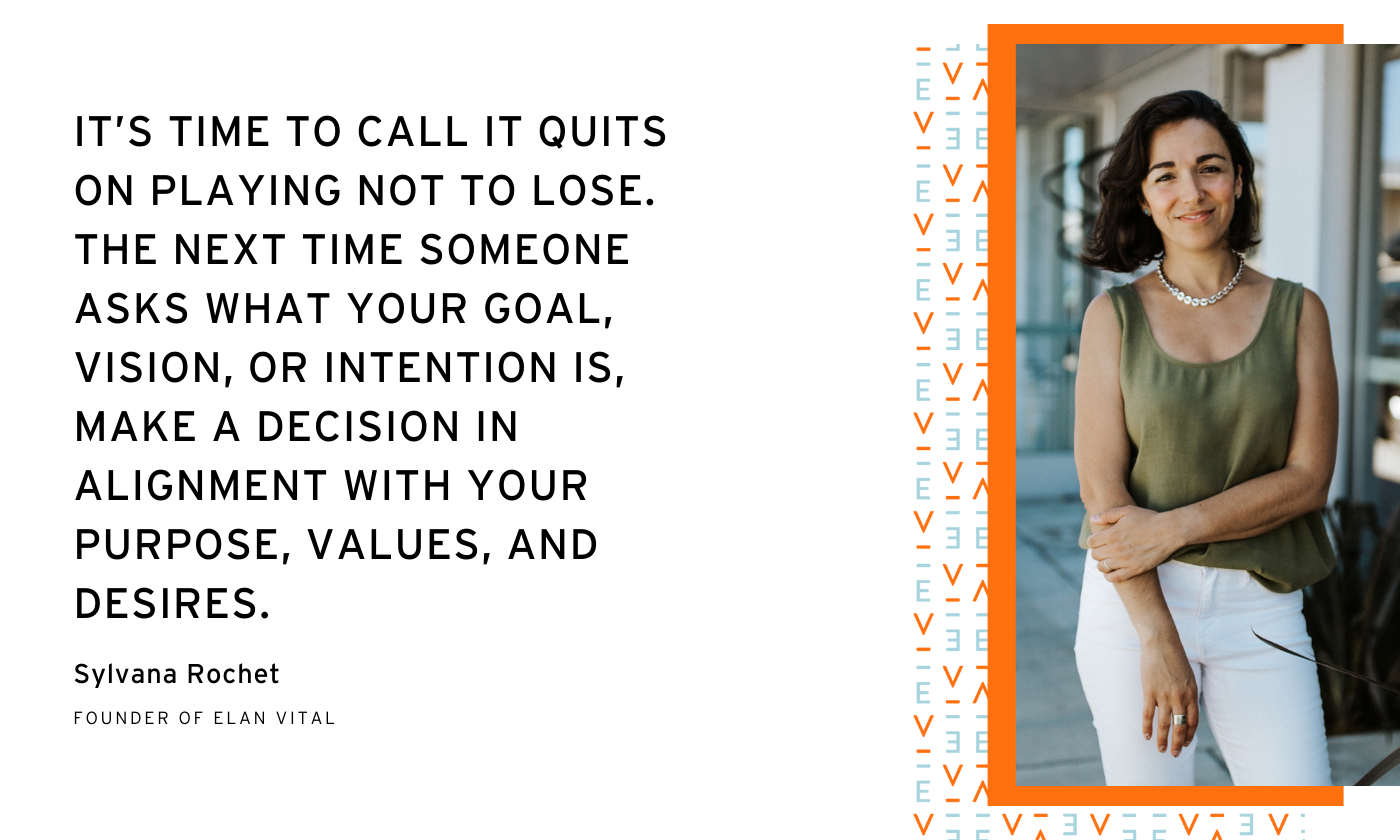Are you playing not to lose?
“I just don’t know what to do,” explained my friend Jesse, his voice filled with sadness and worry. The afternoon sun streamed through my kitchen window as Jesse’s anxiety cast a long shadow. Recently, he had parted ways with his long-term partner, for the most part, amicably. News had reached him that there was a death in her family, and Jesse was at a loss about what to do next.
While Jesse’s situation was unique, it fell in line with a well-worn trope that I saw my clients fall into consistently.
Jesse had formed relationships with his ex-partner’s family, and he was grieving their loss. Yet the “rules” of breakups don’t give clear instructions about what to do in situations like this one, and Jesse’s respect for the family left him paralyzed in fear of doing the “wrong” thing resulting in someone being upset.
I'm sure all of us can think of a time when we found ourselves in a sticky situation and genuinely did not want to do the wrong thing, which isn’t entirely bad. The problem is that it's a very small way of thinking.
It’s not playing to win. It’s playing not to lose.
I had to learn this lesson myself in an area of life where many people play not to lose: money.
About a decade ago, when I was thinking of starting my coaching practice, I decided to take a money consciousness course with Landmark Education. I knew I had some unhealthy beliefs when it came to money, and I did not want to bring that baggage into the foundation of my business. I knew I wanted financial abundance and ease, but I had a lot of fear about having abundance.
In my childhood, my father had gone bankrupt with the family business in France, in a very public and sudden way. I’d heard a family story about a grand-uncle who had a gambling addiction and had committed suicide after betting everything he owned in a final attempt to recoup losses, only to end up losing everything and leaving his wife and children destitute. My relationship with money was one of distrust. I feared that it was unreliable, that it might leave me any day, and that it could make people lose their minds.
Back in my kitchen with Jesse, I looked him straight in the eye as he wavered on whether or not to reach out to his ex, and I asked him, “What’s your intention? I understand what you don’t want to happen here (not offend anyone), but what do you want to bring to the table beyond that? Do you wish to be a source of love and calm, do you want to explicitly offer your support, or do you want to subtly express your genuine care by sending flowers and a heartfelt note?”
He looked at me with a puzzled expression and hesitantly spoke, “My intention is…I don't want to do the wrong thing?”
It’s natural to first identify what we do not want in a given situation. In Jesse’s case, he did not want to hurt a lovely family with an insensitive response to a death.
For me, when it came to money, I did not want to manage money recklessly the way my father had, I did not want to live my life with an irrational fear of having money disappear suddenly, and I did not want to depend on a man for my livelihood like my mother had done. My money goals, up until that point, had been centered around playing it “safe and small,” and “avoiding bad decisions.” I focused on strategies to “save money” so I could live on the fixed salary I made in my career in public health and international development.
The problem is that most people stop there, and their goal becomes “to stop crappy things from happening.” And they forget to set their sights on the bold, big, beautiful outcomes they want to have instead!
In the coaching process, some of the central recurring questions are, “What do you want?” and “What’s your intention with what you’re doing here?” This is meant to bring your focus back to the positive, generative intention you want to fly toward, as opposed to the cliff you’re attempting not to fall off.
As a coach, it's my job to not just help people avoid the negative situation they’re fearing, but beyond that to guide them in going after the rich, exciting technicolor reality that their heart is longing for.
I had my own breakthrough when one day, mid “money course”, I was talking with my husband (we had just started dating) about my desire for financial abundance. He asked, “Why not focus on how to make lots more money than what you make now, so that you don’t have to live the rest of your life focused on how to live within a limited budget every month?”
It had never occurred to me to think about money this way. I could build a life where I would be the one to decide how much money I wanted to make based on the kind of life I wanted to live, and then go out and create that reality.
When we change the conversation from avoiding the undesirable to intending and calling what we do want, the language and actions change immediately. It becomes a conversation about what is possible, and this is where we unlock our creativity.
My money driver went from, “Try to live as small as possible and stay within a budget determined by what someone else dictates” to “Imagine and actualize your most abundant and expansive financial reality.”
I stopped playing not to lose and started playing to win, big and wild. That shift in thinking has helped me build a life overflowing with abundance of every kind.
Whether in business, relationships, or money, leading with what you do not want is universal to those looking to cover their asses or aspire to the bare minimum. But this is not who YOU are.
It’s time to call it quits on playing not to lose.
The next time someone asks what your goal, vision, or intention is, make a decision in alignment with your purpose, values, and desires. For me, it was designing a life where money was another fun tool I used to create a vibrant life.
I am playing to get the most exciting and positive outcome possible in every facet of life, and you should too.
If you’re ready to stop playing not to lose and want to start playing to win, then let’s talk.
It may be time to consider Purpose Coaching. We can start with a Discovery Call, where we will explore what’s possible for your life.




